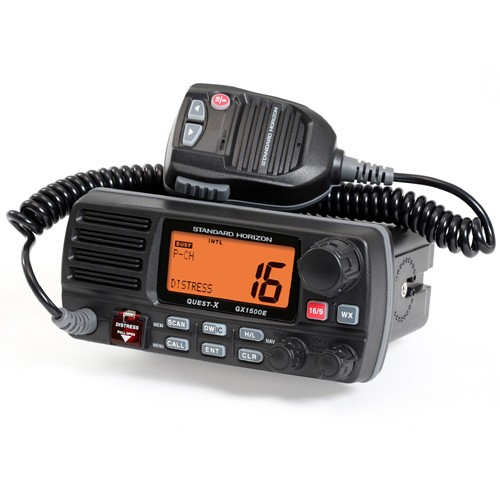Channel 16 blocked by careless radio operators
by Portsmouth/Sail-World Cruising on 24 Oct 2010

Channel 16 - vital that the line is left open for pan pans or maydays SW
Private yachts are putting lives at risk by accidentally blocking the airwaves, the coastguard in Britain has warned.
Rescue personnel have been unable to find vessels in distress because pleasure boats have left their radios transmitting, blocking the Solent coastguard's emergency frequency.
Twice in recent weeks the problem has been so severe that a lifeboat and helicopter had to be dispatched to locate the source of the signals, because of fears mayday calls could be missed.
On Saturday 25 a barely audible mayday signal was received while a helicopter was hunting for the source of the radio interference, and the aircraft had to be diverted for an hour-long search involving two other boats.
By the time help arrived the single injured crewman aboard the boat had become unconscious, and coastguard watch officer Audrey Pedersen said the time wasted in finding him could have proved fatal.
'If we miss a mayday call it could have very serious consequences indeed,' she said. 'On this occasion all we could hear was the man going in and out of consciousness, but there was too much noise to make out anything else.
'Most of the time when this happens it's short-lived and only an irritation, but when it goes on for hours it puts lives in danger because we could easily miss a mayday signal.
'If members of the public are going to take private boats out they need to pay extra special attention to their microphones to make sure they are not left broadcasting permanently.'
An 'open mic problem occurs when someone using a Marine VHF radio leaves the frequency used in emergencies, channel 16, transmitting without their knowledge.
This channel is routinely used by vessels making initial contact with each other, but they should then switch to another frequency to keep the airwaves clear. On September 25 the boat with an open mic was eventually located by helicopter in Poole Harbour, and another was found by a lifeboat off the coast of Hayling Island on Sunday, October 3.
Every time a helicopter is sent out it costs the taxpayer £6,000 per hour, and an RNLI all-weather lifeboat costs only slightly less per hour, at £5,500.
Solent coastguard watch officer Katherine Piggin said the cost involved was huge, but sometimes they simply have no choice but to clear the airwaves in any way they can.
She said: 'It is the most horrendous feeling when you think you might have missed a mayday.
'And it becomes so much easier to do if we have constant chatter buzzing in our ears because someone has left their microphone on permanent transmit.'
Leisure sailing firms say they take the problem seriously. Laura Hamlin of yacht hire firm Sunsail said that customers were required to hold a licence before using VHF radios.
She said: 'Sunsail takes the use of channel 16 very seriously and ensure that all customers are given a full boat brief before use.'
If you want to link to this article then please use this URL: www.sailworldcruising.com/76113